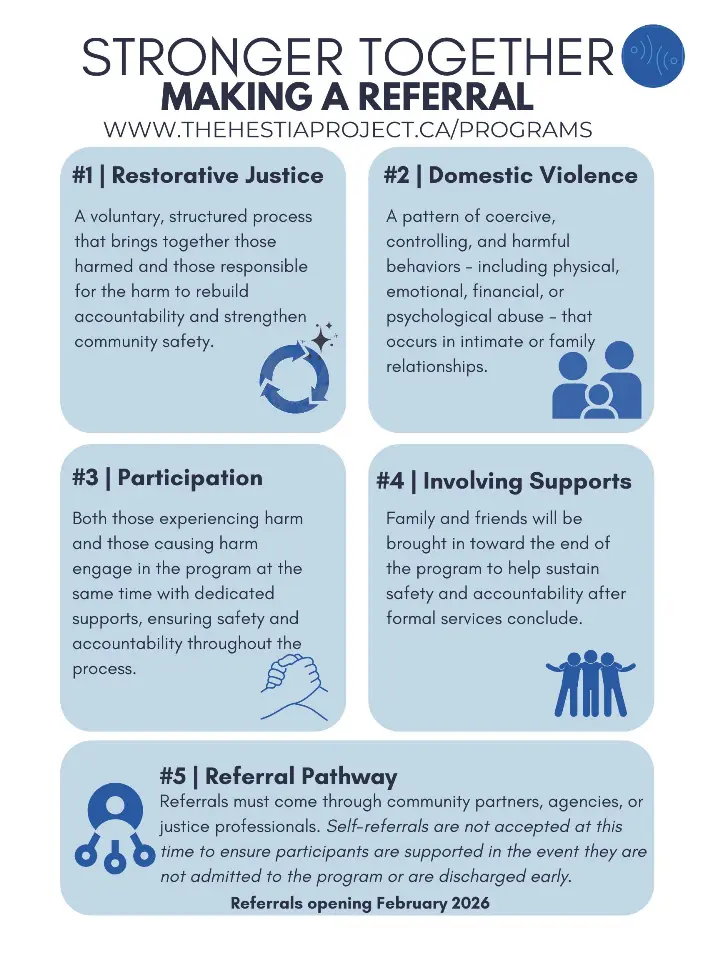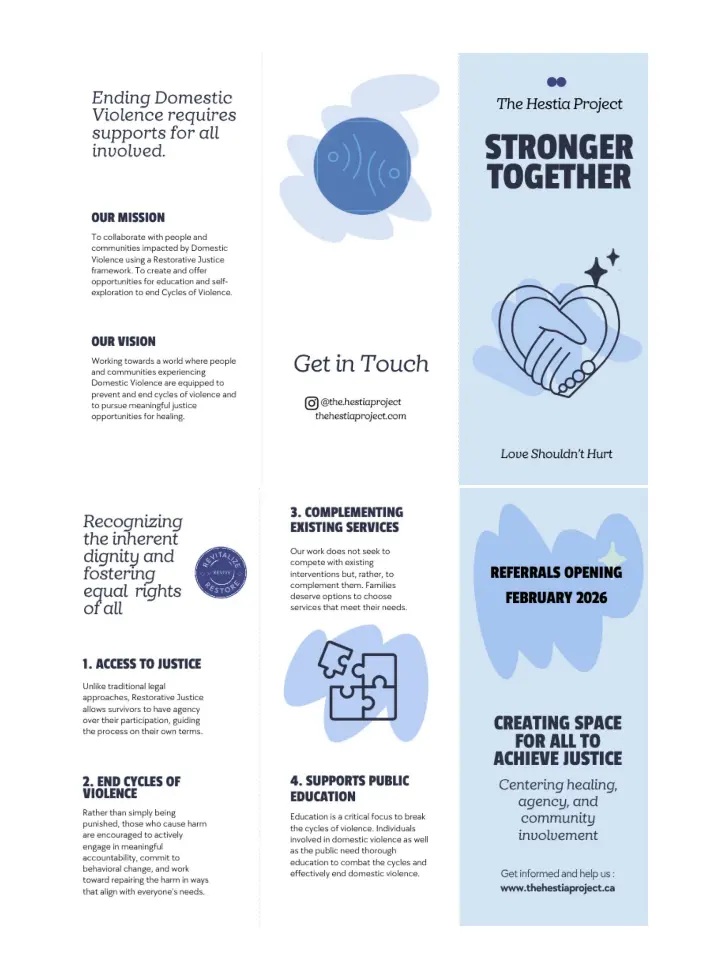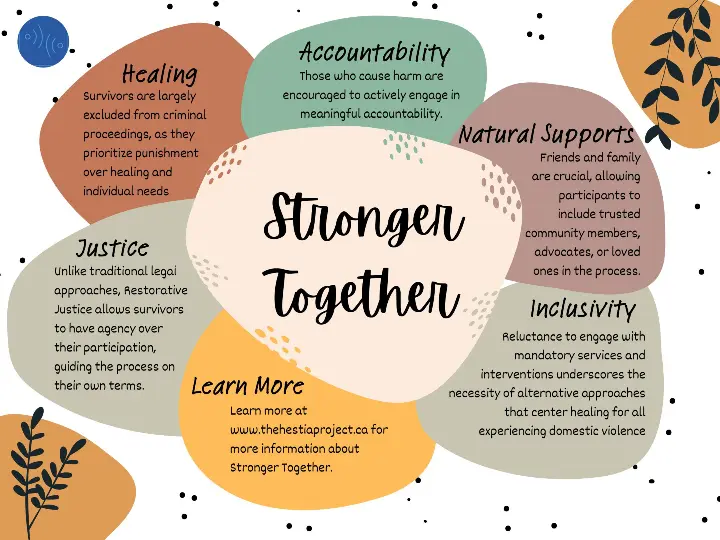
Stronger Together
Details
Southern Alberta
The Idea
This program offers a restorative justice pathway for families impacted by domestic violence, providing concurrent services to both survivors and perpetrators. Survivors receive safety planning, advocacy, and healing supports, while perpetrators engage in intensive intervention to recognize and end abusive behaviors. Once both are prepared, a facilitated restorative circle allows survivors to pursue the type of justice they want - whether accountability, acknowledgment, or repair - outside the limitations of the traditional court system.
Akey element of the program is the continuation of care through the inclusion of natural supports (e.g. family, friends, community members) within the restorative circle. Including those who will remain in the lives of the survivor and perpetrator in the services equips them with the knowledge and skills to ensure that safety, accountability, and healing extends beyond formal services. This approach builds a stronger network of ongoing support, reduces isolation for survivor and perpetrator, and reinforces positive change for perpetrators. This creates long-term sustainable outcomes for fostering healthy relationships.
Research shows that satisfaction with restorative processes is significantly higher than with conventional justice, as survivors regain agency and perpetrators are directly challenged to change. By working with both sides, the program not only addresses immediate harm but also interrupts ongoing cycles of abuse, creating safer families and stronger communities.
This grant will allow 5 families to complete the program, with an expected outcome of 60% reduction in abusive incidents for the family. This measurable reduction directly enhances overall wellbeing and safety of survivors. This directly translates to improved mental health, family stability, and reduced reliance on community services. The ripple effect means reductions in families accessing healthcare, criminal justice systems, and improved access to housing. Breaking cycles of violence contributes not only to the family unit, but also contributes to a healthier and more resilient society.
Who Will Benefit?
Restorative justice provides a broad range of benefits, with families experiencing the most immediate and direct impacts. Survivors gain safety, validation, and the opportunity to have their voices heard in a process designed to prioritize their needs and well-being. Perpetrators benefit by being held accountable while also reducing the likelihood of future incidents. Together, this creates a meaningful reduction in abuse within the family unit, which in turn fosters healthier relationships, greater stability, and improved overall well-being.
The impact extends beyond the immediate family. Friends and extended family members of both survivors and perpetrators benefit as well. When abusive tactics are reduced or eliminated, the stress, fear, and concern carried by those close to the family are eased. Loved ones no longer need to live in constant worry about the safety of survivors or the destructive behaviours of perpetrators, which allows them to shift from crisis response to genuine support and connection.
On a larger scale, restorative justice reduces pressure on critical social systems. Healthcare providers see fewer cases of injury and trauma caused by violence, freeing resources for other urgent needs. Law enforcement and courts face fewer repeat offences, decreasing costs and caseloads. Children’s services benefit from increased family stability, reducing the number of children entering care due to unsafe environments. These systemic improvements not only enhance services for those who require them, but also save taxpayers money by lowering demand on already overburdened systems.
Ultimately, restorative justice creates a ripple effect of safety, healing, and accountability. Families experience the deepest and most immediate relief, while friends, communities, and public systems benefit from the wider reductions of harm. By addressing the root causes of abuse and sustaining change, restorative justice strengthens individuals, families, and society as a whole.



